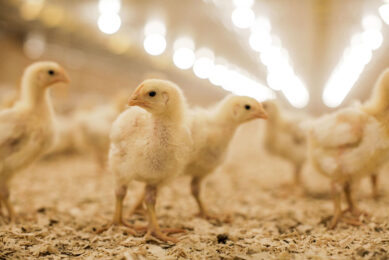Novozymes and Ag council to partner for climate
Climate Consortium Denmark, the Danish Agricultural Council, and Novozymes bring agriculture’s contribution to solutions for the climate challenge into focus. The aim is to highlight the role that Denmark’s strong competencies in biotechnology can play for the agricultural sector.
The Danish Agricultural Council and Novozymes have a concrete goal, to develop a vision jointly for how the use of biotechnological solutions can make both agriculture and the food industry more effective and sustainable.
The partnership also includes Climate Consortium Denmark, which aims to increase the visibility of Danish solutions and competencies for both climate and energy as well as to raise international awareness of the common efforts through various activities.
Enzyme potential
Biotechnology is already providing solutions for agriculture. One example is enzymes for animal feed.
If all the pigs in Europe were given feed supplemented with these enzymes, their digestion would be improved to such an extent that CO2 emissions in Europe would be reduced by 4 million tons per year.
Other enzymes enable the prevention of oxygen depletion in lakes and rivers that is currently caused by the leaching of phosphorus from manure.
Novozymes is also working to develop microorganisms and environmentally efficient technologies for maximizing the energy yield from agricultural manure for the production of electricity, heat, and transport as well as high-quality fertilizer.
The Danish Board of Technology estimates that if the entire energy content of the manure was utilized, it would supply 25% of the energy requirements of the transport sector.
Denmark converts less than 5% of agricultural manure into energy in the form of biogas. Of this 5%, only 50% of the available energy is utilized.
Results at COP15
The starting point for the partnership was May 27 in Copenhagen, where the Danish Agricultural Council together with IFAP, the International Federation of Agriculture Producers, hosted a global climate summit, Climate Change – Farmers’ Solutions.
Subsequently, a wide range of experts, researchers, international food producers, and decision-makers will help to develop the vision that will be presented at the UN Climate Conference in Copenhagen this December, COP15, as the Danish food industry’s recommendation concerning more efficient and climate-friendly production of food.











